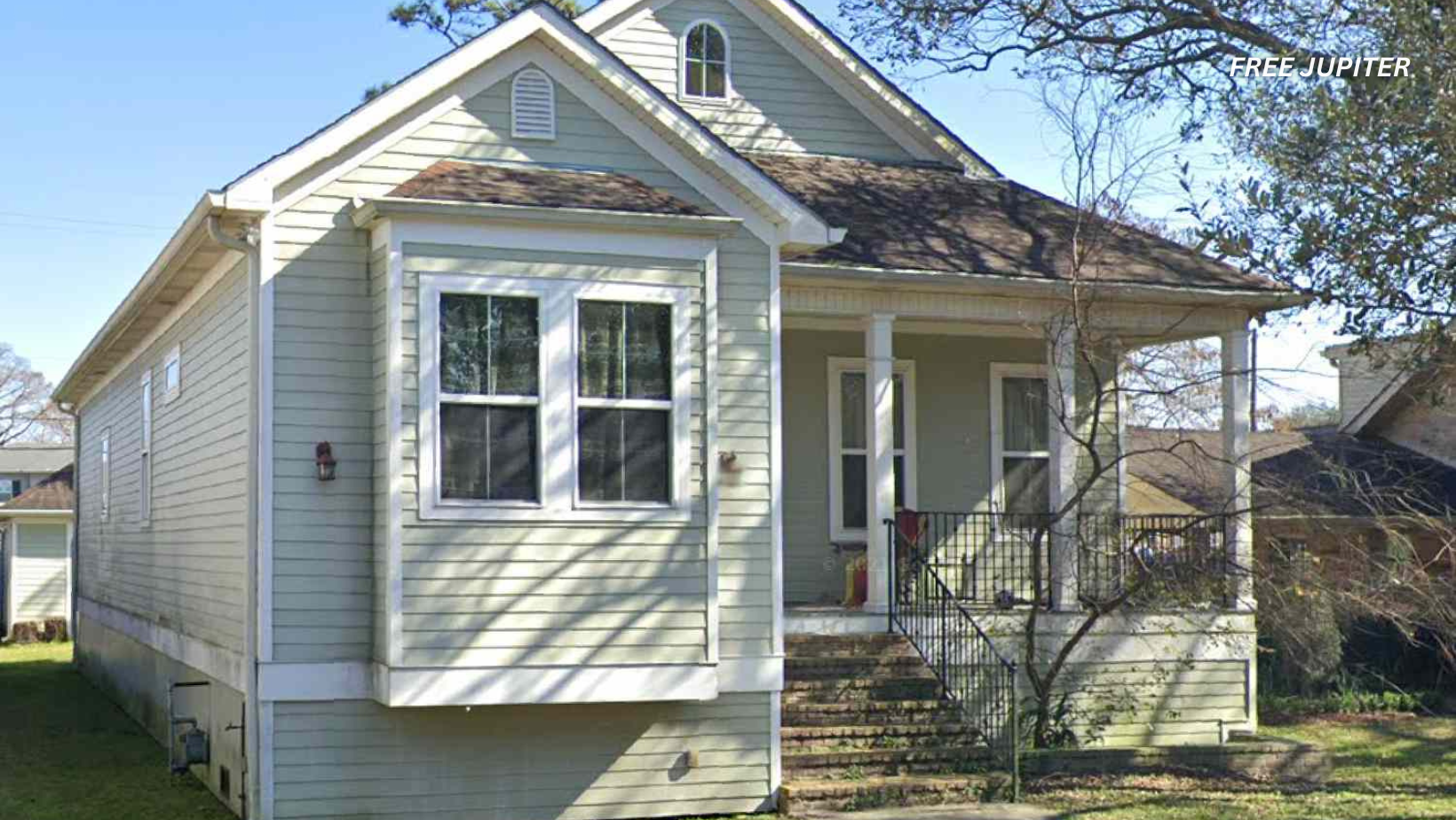In a deeply unsettling case that has captured local attention, authorities in New Orleans uncovered a distressing situation involving an elderly woman who had been residing with the preserved remains of her adult son for nearly nine months. The home, located in the Lakeview neighborhood, was found in a state of severe neglect and filled with an overwhelming accumulation of waste and animals.
The Discovery and Initial Investigation
The woman, identified as Barbara Hainsworth, is described as an elderly individual with mental disabilities. According to reports from local news outlet Nola.com, city officials from the Healthy Homes Administration documented the conditions during their inspection. When code enforcement officers arrived at the residence on May 15, they found the mummified body of Hainsworth’s son, who reportedly weighed around 600 pounds at the time of his death.
The environment inside the house was described as chaotic and hazardous. Investigators noted the presence of numerous animals, including chickens and roosters, as well as rats. The property was heavily cluttered with garbage, creating an extreme hoarding situation that posed significant health risks.
Community Concerns and Previous Complaints
Public records indicate that neighbors had expressed ongoing concerns about the state of the property for some time. Complaints were made to city officials regarding the accumulation of trash and the increasing presence of vermin, which had become a nuisance in the neighborhood. These reports prompted city inspections and enforcement actions.
Barbara Hainsworth, once a practicing physician, had her medical license revoked roughly ten years ago. Despite her professional background, she appeared unable to maintain her living environment or care for herself and her deceased son appropriately.
Police Response and Statements
When officers from the New Orleans Police Department arrived to investigate, they inquired about the decomposed remains found within the home. Hainsworth reportedly acknowledged the presence of the body, stating, “That’s my son. He died about nine months ago.” She also mentioned that her son had suffered from various medical conditions, though his identity was not publicly disclosed.
Read more: Man on Nature Walk Stumbles on Treasure Trove of Priceless Coins: ‘Face To Face With History’
Health and Safety Actions Taken
Following the discovery, the City of New Orleans’ Code Enforcement condemned the property as a serious health hazard. While the home was deemed unsafe, officials have not announced any plans to demolish the structure at this time.
The situation first came to the attention of the New Orleans Health Department on May 7, when a member of the department alerted code enforcement. An investigator was sent immediately to the site, uncovering the dire conditions described as “horrific,” including the mummified remains and extreme hoarding.
A statement from the Department of Code Enforcement detailed the next steps: “Our demolition contractor has been instructed to prepare for an assessment to clean up the property, remove the accumulated trash, and seal a hole found in the bathroom floor. Additionally, the New Orleans Police Department will board up the property to secure it.”
Prior Enforcement and Mental Health Intervention
Interestingly, just one day before the discovery became public knowledge, on May 6, Hainsworth had been fined $6,125, and the property was officially declared a public nuisance. This fine was part of ongoing efforts to address the deteriorating conditions.
In response to the mental health concerns raised by the situation, a mobile crisis unit was dispatched to evaluate Hainsworth’s psychological state. To date, she has not faced any criminal charges nor been arrested. The investigation into the circumstances surrounding the death of her son and the conditions of the home remains active.
Broader Context and Community Impact
This case highlights the complex challenges that can arise when mental health issues intersect with extreme hoarding and neglect. The presence of a deceased family member’s remains in a residential setting for an extended period is rare and raises important questions about social support systems, community intervention, and the responsibilities of local authorities.
Neighbors and community members have expressed shock and concern, not only about the tragic loss of life but also about the potential health risks posed by the unsanitary conditions. The involvement of multiple city agencies underscores the multifaceted nature of such cases, requiring coordinated efforts from law enforcement, health departments, and social services.
Read more: DoorDash Driver Pleads Guilty To Stealing $2.5 Million In Delivery Scam
Related Stories and Comparable Cases
This unsettling discovery in New Orleans is part of a broader pattern of incidents where extreme hoarding, mental health struggles, and tragic family circumstances intersect. Below are some related cases that have drawn attention for their complexity and human impact.
1. Woman Found Living with Deceased Husband’s Body for Months in California
In a similarly distressing case from California, a woman was discovered living with the body of her late husband for several months before authorities intervened. The home was reported to be in disarray, with signs of hoarding and neglect. Mental health professionals were called in to assist, highlighting the challenges faced by individuals coping with grief and isolation.
2. Extreme Hoarding Case in Ohio Reveals Multiple Deceased Family Members
An Ohio residence shocked neighbors and officials when multiple deceased family members were found within a severely cluttered home. The extreme hoarding conditions complicated the investigation and cleanup efforts. This case underscored the need for early intervention and community support to prevent such tragedies.
3. Elderly Man Discovered Living with Mummified Mother’s Remains in Texas
In Texas, an elderly man was found living in a home containing the preserved remains of his mother. The situation raised concerns about elder care, mental health, and the social isolation that can contribute to such circumstances. Authorities worked with social services to provide assistance and address the health hazards posed by the environment.
4. Mental Health Crisis Leads to Discovery of Deceased Relative in New York Apartment
A mental health crisis in New York City led to the discovery of a deceased family member in a cluttered apartment. The case drew attention to the importance of mental health outreach and the role of community agencies in identifying and assisting vulnerable individuals before situations become critical.
These stories, while tragic, emphasize the importance of awareness, compassion, and coordinated community efforts to support individuals facing mental health challenges and prevent similar outcomes. They also remind us of the complexities involved in addressing hoarding and neglect, particularly when compounded by grief and isolation.
Read more: See the Sun Fire Off a 600,000-Mile-Long Eruption in Spectacular New Footage
Conclusion
The heartbreaking situation uncovered in New Orleans is, unfortunately, not an isolated incident. Similar cases across the country reveal how mental health struggles, social isolation, and extreme hoarding can converge with tragic consequences. From individuals living with the remains of loved ones to homes overwhelmed by clutter and neglect, these stories highlight the urgent need for comprehensive support systems that address both physical safety and emotional well-being.
Such cases underscore the critical role of community vigilance, timely intervention, and coordinated efforts among law enforcement, health services, and social agencies. By learning from these incidents, society can better recognize warning signs and provide compassionate assistance before situations escalate to this degree of crisis. Ultimately, these tragedies remind us of the human vulnerabilities behind the headlines and the importance of empathy in fostering healthier, safer communities.










